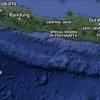The stock rout isn't over: Dow tumbles
24 Jan 2022
CNN

Wall Street was deep in the red again Monday as investors feared the Federal Reserve's plans to hike interest rates will eat into corporate profits. The tensions in Ukraine, earnings season and — of course — inflation weren't helping, either.

It's shaping up to be the worst day for the market since October 2020 when rising Covid infections, the impending election and questions over additional government stimulus weighed on stocks.
The Dow (INDU) fell more than 1,000 points at its weakest. As of the early afternoon it was trading down some 800 points, or 2.4%.
The S&P 500 (SPX), the broadest measure of the US equity market, fell 2.9% and is on track to end the day in correction territory — a 10% drop from its most recent peak. Last week, the index logged its worst week since March 2020.
The Nasdaq Composite (COMP), which entered correction territory last week, was the biggest loser, trading down 3.4% in the early afternoon.
Each day last week, stocks fared worse in the final hour of trading, which tends to be a bad sign for the next day, said TD Ameritrade chief market strategist JJ Kinahan. That negative sentiment continued Monday.
A lot to digest
Investors also have a lot on their plate this week.
Earnings season has moved on to Big Tech, including Microsoft (MSFT), IBM (IBM), Intel (INTC) and Apple (AAPL), which report results this week.
Then there's the Fed meeting, concluding with Wednesday's policy statement and subsequent press conference. As of Monday morning, market expectations for this week are that the central bank will keep interest rates near zero for a little longer, according to the CME FedWatch tool. But for the next meeting, which isn't until March, expectations of a quarter-percentage-point rate hike are above 80%.
Expectations are only part of the game. The Fed could also conclude that inflation has run too hot at the end of 2021 and crank up rates more — or sooner.
Treasury yields, which track interest rate expectations, were off last week's highs Monday. The 10-year bond yielded 1.72% in the early afternoon after climbing past 1.8% for the first time since before the pandemic last week.
While the Fed is trying to get inflation down by normalizing its pandemic-era policies, the US economy is grappling with the fallout from the Omicron variant. America's private sector output growth slowed in January as the highly infectious variant put more pressure on the already-battered supply chain and existing labor shortage, according to the IHS Markit flash composite purchasing managers' index.
Making matters worse, investors are anxiously watching the situation in Ukraine as fears mount that the country could be invaded by Russia.
The news that the United States and United Kingdom are withdrawing some staff from the local embassies isn't exactly breeding confidence the situation will resolve quickly and European stock markets are sharply lower as well.
Commodities markets are feeling the pressure of the rising tensions and analysts believe oil prices could soar if the situation escalated. On Monday afternoon, however, US oil prices fell 2.2%, or $1.90 per barrel, to $83.23.
— CNN Business' Julia Horowitz contributed to this report.


 New Zealand
New Zealand Argentina
Argentina  Australia
Australia  Austria
Austria  Brazil
Brazil  Canada
Canada  Germany
Germany  Ireland
Ireland  Italy
Italy  Malaysia
Malaysia  Mexico
Mexico  Poland
Poland  South Africa
South Africa  United Kingdom
United Kingdom  United States
United States 




















